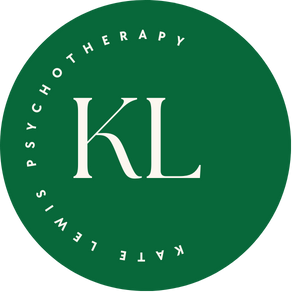The Web of Chronic Pain, Anxiety, and Depression
Understanding the Connection: Chronic Pain, Anxiety, and Depression
Chronic pain, anxiety, and depression form an intricate web of psychological and physical interconnections that can profoundly impact a persons quality of life. Each of these conditions can exist independently, but when they occur together, they often exacerbate each other, creating a vicious cycle that can be challenging to break. In this blog post, I will explore these links, discuss the underlying mechanisms, and offer insights into managing these comorbid conditions effectively.
The Web of Chronic Pain, Anxiety, and Depression- lack of diagnosis
Chronic pain is defined as pain that persists or recurs for more than three to six months. Unlike acute pain, which is a direct response to injury and typically resolves as the body heals, chronic pain can continue long after the initial cause has been treated or may even occur without a known trigger. This persistent pain can have profound effects on mental health, particularly concerning anxiety and depression. Often chronic pain is idiopathic (cause is unknown) and this can be particularly difficult to deal with as the threat is unknown, I have hear clients say, despairingly “I have been to see physio’s, drs’, I have had scans, tests, no one can tell me whats wrong!”. As humans we like to know what we are dealing with, what is the threat, our nervous system then responds according to the threat. When the threat is unknown, which can be the case with Musculo-skeletal-pain we are left holding the anxiety on our own, it can feel as though we have no one to share it with, because we don’t know what ‘it’ is. This can lead to us filling in the gaps, creating more anxiety and depression.
Chronic Pain and Anxiety
For many individuals, the unpredictability of pain flare-ups contributes to a constant sense of unease or fear about when and how the pain will manifest next. This concern can lead to the development of an anxiety disorder, characterized by symptoms such as excessive worry, restlessness, and difficulty concentrating.
Our autonomic nervous system is elevated by the stress from dealing with chronic pain. This is called the sympathetic nervous system, its responsible for the body’s ‘fight, flight, or freeze’ response. This reaction triggers the release of stress hormones that can heighten anxiety levels, perpetuating a distressing state of heightened alertness and vigilance. Pain management is centred around lowering the sympathetic nervous system and activating the parasympathetic nervous system. This system is responsible for rest and digest. (ill talk about exercises to engage this system later in this blog)
Chronic Pain and Depression
The experience of chronic pain is also closely associated with depression. The limitations imposed by pain can diminish one’s ability to engage in activities that were once enjoyable, leading to feelings of isolation and helplessness. When an individual’s day-to-day functionality is compromised, a sense of loss and a lowered self-esteem can contribute to the onset of depressive symptoms.
Furthermore, the chronic nature of the pain amplifies the feeling of a never-ending struggle, which can foster the belief that the situation is hopeless. This despondency can manifest as depression, with symptoms like persistent sadness, loss of interest or pleasure in activities, and significant changes in appetite, sleep, and energy levels. Again the sympathetic nervous system response may be to ‘freeze’, the constant awareness of the pain can be exhausting and over time can lead to an apathy in mood and depressive feelings.
The Bi-Directional Relationship
The relationship between chronic pain, anxiety, and depression is bi-directional. This means that not only can chronic pain lead to increased anxiety and depression, but the presence of anxiety and depression can also intensify the perception of pain. The stress and emotional burden of mental health disorders can lower the body’s pain threshold, make pain feel more intense, and reduce an individual’s ability to cope with pain effectively.
How can counselling help with chronic pain
A large part of the therapy process is about bringing balance to an inflamed, heightened, and dysregulated nervous system. Through processing our thoughts and feelings, metabolising the difficult feelings making them ‘easier to digest’, and releasing and expressing historic emotions that have been shunned into the body we can bring back equilibrium in the body and mind and spirit.
Sharing the burden of pain with a counsellor has a huge validating effect on the body, the body is heard, the pain is shared with someone. This validation makes it real, its no longer ‘all in the head’.
By approaching chronic pain in a multi-directional way, accepting that there is a mental health part in activation and a physical part in activation, allows for the client to understand the true connection between mind and body.
What else can help?
As discussed above, to bring about balance and equilibrium within the body and mind, here are some things that you can do to activate the calming, parasympathetic nervous system:
- Meditation – meditation helps you activate the brains relaxation response. It can help recognise anxious feelings, reduce impulsive responses and bring about calm.
- Breathing exercises help balance the sympathetic and parasympathetic nervous responses which can reduce bodily symptoms of distress, such as elevated heartrate, shallow breathing, feeling feint.
- Vagus nerve exercises – see the link here. https://youtu.be/TONw4nCjb84?si=ig_4CWFxXfz_eA7M
The vagus nerve has an important role to play in regulation of the nervous system.
- Mindfulness body scan – when the body feels like it is letting you down it can then feel difficult to relate to it positively. The body scan can help by paying attention to all of the body, from the ears to the toes and acknowledging all parts of our body. Follow this link https://youtu.be/_DTmGtznab4?si=2VNQ4oXo5mx6txiu
Conclusion
The interrelationship between chronic pain, anxiety, and depression is a reminder of the complex interplay between the mind and body. It’s not just ‘all in your head’ and it’s not simply ‘all in the body’ as in a damaged muscle or nerve that needs diagnosing. Depression and anxiety can have a huge physical effect on the body, and physical pain and feel so debilitating it can lead to depression and chronic anxiety. I hope this post has helped you understand the web of complexities regarding the mind and body relationship. With this understanding you can then explore how counselling might be able to help you.




